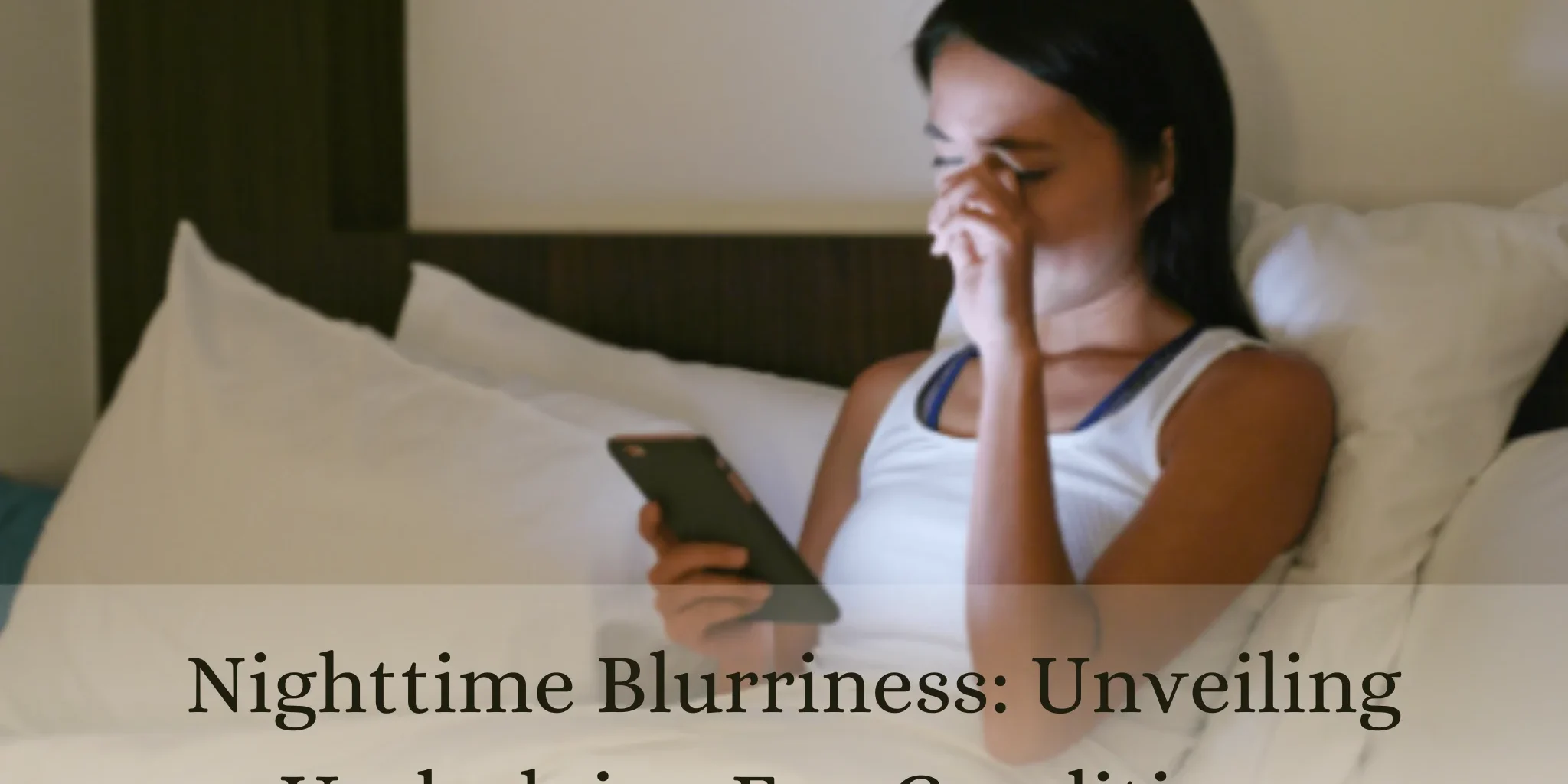Do you ever find yourself squinting or struggling to see clearly at night? Nighttime blurriness can be a disconcerting experience, leaving many wondering if it’s simply a result of tired eyes or if it could be indicative of a more serious underlying eye condition.
In this blog post, we’ll explore the potential causes of nighttime blurriness and discuss when it might be time to seek professional advice.
Common Causes of Nighttime Blurriness
1. Fatigue and Eye Strain:
One of the most common reasons for nighttime blurriness is simply fatigue and eye strain. After a long day of staring at screens or engaging in visually demanding activities, your eyes may become tired, leading to temporary blurriness. Adequate rest and the use of the 20-20-20 rule (taking a 20-second break every 20 minutes and looking at something 20 feet away) can help alleviate strain.
2. Dry Eyes:
Insufficient lubrication on the surface of the eyes can result in dry eyes, causing discomfort and blurriness, especially in low-light conditions. Using artificial tears or adjusting your environment to reduce dryness can often alleviate these symptoms.
3. Prescription Changes:
If you wear glasses or contact lenses, changes in prescription can affect your vision, particularly in low-light settings. Regular eye exams are crucial to ensure that your corrective lenses are up to date and suitable for your current visual needs.
When Nighttime Blurriness Might Indicate an Underlying Issue
1. Refractive Errors:
Refractive errors, such as nearsightedness, farsightedness, or astigmatism, can contribute to blurry vision, especially in low-light conditions. If you notice persistent nighttime blurriness, it may be a sign that your prescription needs adjustment.
2. Cataracts:
Cataracts are a common age-related condition where the eye’s natural lens becomes cloudy, causing vision problems. While cataracts typically develop slowly, they can eventually lead to noticeable nighttime blurriness. Regular eye check-ups are essential for early detection and timely intervention.
3. Glaucoma:
Glaucoma is a group of eye conditions that damage the optic nerve and can lead to vision loss. Some forms of glaucoma may cause difficulty seeing in low-light conditions, making nighttime blurriness a potential indicator of this serious eye condition.
4. Retinal Disorders:
Disorders affecting the retina, such as retinal detachment or diabetic retinopathy, can cause nighttime blurriness. These conditions require prompt medical attention, as they can lead to permanent vision loss if left untreated.
When to Consult an Eye Care Professional
If you experience persistent nighttime blurriness or notice any other changes in your vision, it’s crucial to consult with an eye care professional. They can conduct a comprehensive eye exam to identify the underlying cause of your symptoms and recommend appropriate treatment or corrective measures.
Remember that maintaining regular eye check-ups is key to preserving your eye health and catching potential issues early on. Ignoring persistent nighttime blurriness or assuming it’s a normal part of aging can delay necessary interventions and impact your overall quality of life.
Final Thoughts
Occasional nighttime blurriness may be benign, linked to factors like fatigue or dry eyes. However, persistent or worsening symptoms could signal an underlying eye condition. Prioritize your eye health with regular check-ups at Iris Eye Care, where Dr. Vasundhara Kulkarni, an experienced eye doctor in Moshi, can provide expert guidance. Take proactive measures and make lifestyle adjustments to ensure clear and healthy vision, even in low-light conditions. Trust Iris Eye Care for comprehensive eye solutions.







